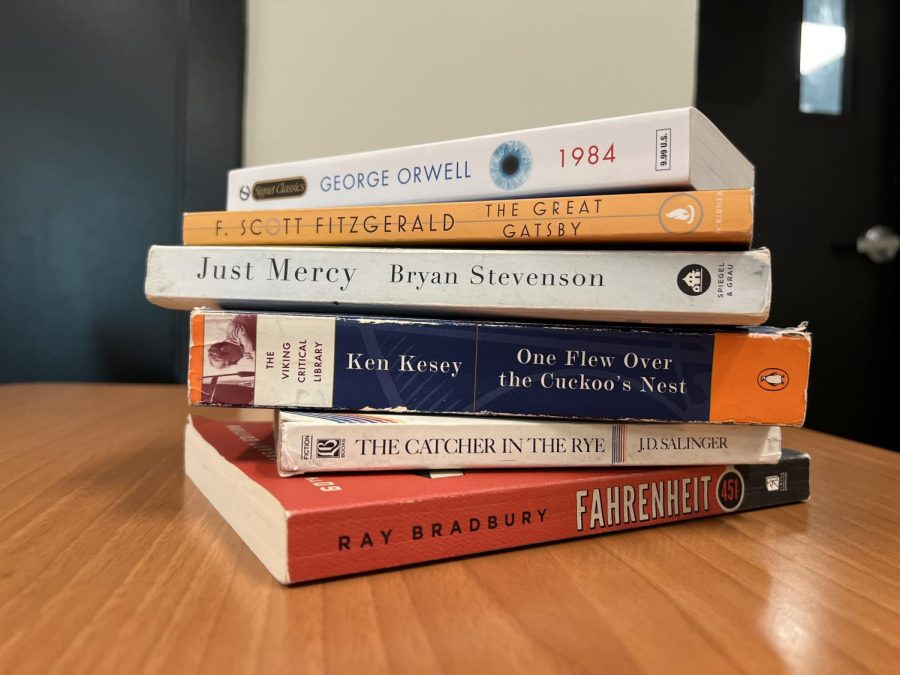Literature Should Light A Fire, Not Be Thrown Into It
February 11, 2022
Recently, school districts all over the country have been banning books for numerous reasons; language, violence, sexual content, and political suggestions are just a few. Now, unless we’re planning to advance into an anti-intellectual, Bradbury-esque society in the near future, this is incredibly harmful to those who actually wish to learn.
Supporters of the censorship of these novels in schools may say that it’s for the good of our children or that we’re protecting students from slanderous propositions that may shatter their perception of the world. Well, isn’t everyone’s “bubble” shattered at one point? Doesn’t everyone have an epiphany or revelation that the world is bigger and more complicated than they ever thought it was? For some, that comes early, but for others–those with more sheltered childhoods–it is at school where they see a perspective outside of their family’s views. If we are not exposed to what makes us uncomfortable, we can never grow.
So, why is book banning so irrevocably launching us towards being a sheltered and controlled population, constantly scared of offending those around us? It’s simple: children.
They are the most impressionable and easy-to-shape population. Children believe almost everything they hear. This means that when they are not given a different perspective on the world other than what is considered politically correct, they will never see the world a different way.
For example, one of the most commonly banned school books is 1984 by George Orwell. Some state that it pushes a communist agenda and includes references to sexuality and profanity “not suited” for younger audiences. The question is: why should a book that shows the harsh
reality of an over-controlling government be banned by authoritarian figures?
The same thing goes for novels like Fahrenheit 451. Isn’t the point of these books to show people what a scary place the world could be if it was controlled to the point that they cannot make their own decisions? The irony of banning novels like Fahrenheit 451 is not lost. Bradbury’s entire point was to demonstrate that anti-intellectualism damages society almost to the point of no return. Yet, in 2022, individuals are suggesting
that society should do just what these novels warn against.
Learning is being exposed to things that one has never experienced and being made to feel uncomfortable as a result. After all, man fears nothing more than the unknown.
These novels, among others, are what stick with people and make them reflect on themselves and society. Words are powerful. Exposure is knowledge. You don’t learn not to play with fire until you get burnt. Then why are we hiding fire from children instead of letting them know
the consequences of their actions? The American Libraries Association says that, “in 2020, more than 273 books were challenged or banned,” which is a decrease from the 377 logged in 2019. Does that mean that change is moving in the right direction? Not necessarily; in 2020, schools and libraries were closed due to the pandemic, which caused that significant decrease. Unfortunately, this is still a very real issue.
To mitigate this learning disaster, we must do just that: learn about it. There is now a National Banned Books week from Sept. 26 to Oct. 2. By spreading the word about efforts like this one and actively participating in them, a change can be made.
Additionally, there are many online webinars, programs, clubs, and other organizations that rally against censorship by reporting potential challenges and bannings so that they can be prevented before they gain traction.
In conclusion, everyone must speak against the banning of books throughout the nation, especially students. Showing those who wish to censor that this is not for the good of all children can stop a major movement before it’s fully begun.



